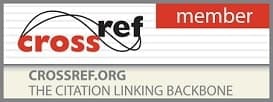- Printed Journal
- Indexed Journal
- Refereed Journal
- Peer Reviewed Journal
P-ISSN: 2394-1685 | E-ISSN: 2394-1693 | CODEN: IJPEJB
Impact Factor (RJIF): 5.38
2023, Vol. 10, Issue 1, Part C
To assess the effect of respiratory muscle training on respiratory muscle strength and cardiopulmonary endurance in stair climbing activities among stroke patients
Author(s): Sujita KC and Sudhakara PM
Abstract:
Background: Neurological dysfunction in stroke equally affects respiratory muscles along with muscles of extremities and trunk. Pulmonary complication is major impairment following stroke which affect lung function, respiratory muscle strength, endurance and diaphragmatic movements causing fluctuation in chest expansion and resulting in chest complication.
Objective: To find the effectiveness of respiratory muscle training in respiratory muscle strength and cardiopulmonary endurance in stair climbing activities among stroke patients.
Methods: Thirty-six patients diagnosed with stroke who met the inclusion criteria participated in the study. They received respiratory muscle training with incentive spirometry and diaphragmatic weight training for 5 days per week for 6 weeks in the physiotherapy department of Kempegowda institute of physiotherapy. Training load was increased every week. The outcome of the study to evaluate the respiratory muscle strength was peak expiratory flow rate (PEFR) and cardiopulmonary endurance for stair climbing activities was Timed Up and Down Stair test (TUDS) and Modified Borg Scale(M-Borg) for dyspnea and Stroke Impact Scale 3.0 for quality of life of stroke patients. Outcome
measures were measured at the baseline (0 week) and end of the intervention (6 week).
Result: Respiratory muscle strength and endurance was significantly improved with respiratory muscle training of 6 weeks. The statistical analysis showed clinically significant improvement in all the outcome measures with p value less than 0.0001 (p<0.0001).
Conclusion: Respiratory muscle training was effective in increasing strength and endurance of the respiratory muscles and in reducing dyspnea for people with respiratory muscle weakness post-stroke. Hence, respiratory muscle training should be included in routine rehabilitation of stroke patients in order to prevent lung complications and preserve functional capacities.
Pages: 209-216 | 124 Views 24 Downloads
Download Full Article: Click Here
How to cite this article:
Sujita KC, Sudhakara PM. To assess the effect of respiratory muscle training on respiratory muscle strength and cardiopulmonary endurance in stair climbing activities among stroke patients. Int J Phys Educ Sports Health 2023;10(1):209-216.








 Research Journals
Research Journals